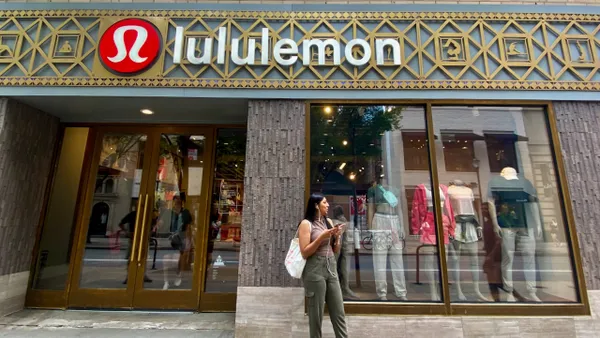Dive Brief:
-
BCBG Max Azria is moving forward with plans to file for Chapter 11 bankruptcy protection, possibly as early as this week, and is likely to close most if not all of its 200 U.S. stores. Landlords have already been notified of several store closures, Reuters reports.
-
Financial and legal advisors are working with the retailer, which anticipates that its intellectual property may attract bids, sources told Reuters.
-
“Like so many other great brands, BCBG has been negatively impacted by the growth in online sales and shifts in customer shopping patterns and, as a result, has too large a physical retail footprint,” Seth Lubove of Sitrick & Company told Retail Dive in an email when news of the retailer’s intentions first surfaced last month.
Dive Insight:
While BCBG Max Azria Group had reportedly hoped to avoid bankruptcy, it looks like a Chapter 11 filing is on the horizon.
Founded in 1989 by Tunisian fashion designer Max Azria (who was also its CEO until last year), BCBG Max Azria Group’s fashion fans once counted the likes of Angelina Jolie, Rachel Bilson, Eva Mendes, Kate Winslet, Victoria Beckham, Alicia Keys and Catherine Zeta-Jones. But the rise of e-commerce and changing consumer expectations, including new pressures to speed up the supply chain to slake the thirst for “see now, buy now” releases, have taken a toll.
BCBG is just the latest in a series of retailers kicking off 2017 by shuttering stores. In the wake of a disastrous holiday shopping season, Macy’s announced on Jan. 4 it could slash more than 10,000 jobs as it closes 68 stores and reorganizes its remaining locations. A day later, Sears Holdings said it will close an additional 150 unprofitable locations, including 108 Kmart and 42 Sears stores, in order to curtail losses. The Limited has also boarded up all 250 stores nationwide. Employees from BCBG's corporate office have indicated on the forum TheStoreClosing.com that all U.S. stores will shutter.
“The impact of fast-fashion and e-commerce on traditional department store retailers like Macy’s, Nordstrom, Sears and J.C. Penney certainly magnifies the challenges that department stores face in a market that is moving quickly toward off-price retailers, where [consumers] can get fashion for a good value,” Jerry L. Hoffman, president of urban real estate consulting firm Hoffman Strategy Group, recently told Retail Dive.















